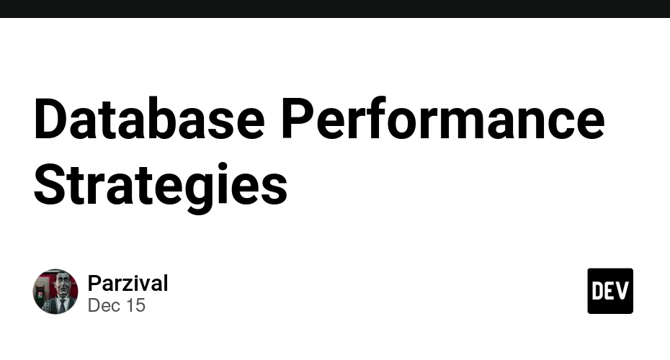Dev
4w
75

Image Credit: Dev
Database Performance Strategies
- Database performance is influenced by several critical factors including item properties, operational factors, scale factors, and availability.
- Different workload types create unique challenges for database performance, including write-heavy, read-heavy, delete-heavy, and mixed workloads.
- Denormalization is a strategy to improve read performance by reducing the number of table joins needed.
- Database locking process ensures data consistency during concurrent operations by managing lock acquisition and lock management.
- Replication architecture provides scalability and reliability through leader and follower nodes.
- Sharding strategy distributes data across multiple databases using shard router and individual shards.
- Database indexing optimizes data retrieval using B-Tree structure and index management.
- Practical implementation considerations include performance monitoring, optimization selection, trade-off analysis, and future planning.
Read Full Article
4 Likes
For uninterrupted reading, download the app